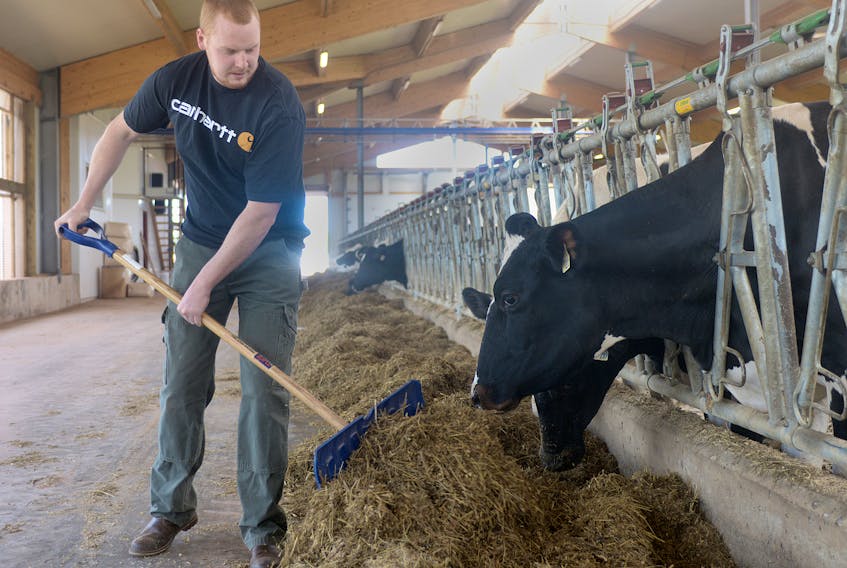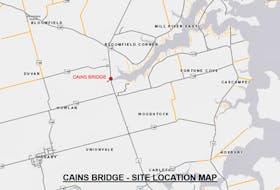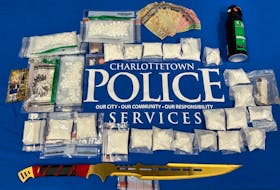Island farmers remain united in their support for Canada’s supply management system, says the chairman of the Dairy Farmers of P.E.I.
Harold MacNevin, who owns and operates a small dairy farm in West Devon, said P.E.I. producers have been following recent trade talks between Canada and the U.S. on their industry.
“We’re always concerned in the process of any negotiations. Sometimes things can change in the 11th hour,” said MacNevin.
“We’re following (negotiations) very closely and keeping on top of it… (Canada’s system) is not something we just take for granted.”
Those talks heated up this week when U.S. President Donald Trump made trade threats against the industry by claiming Canada overtaxes American dairy through its supply management while also attacking Prime Minister Justin Trudeau.
MacNevin said all Canadian dairy producers – there are about 165 in P.E.I. – are united in their support for the country’s system.
“It’s a system that’s working for all stakeholders,” said MacNevin, who has seen strong support from consumers. “They recognize they receive a consistent supply of quality milk at a fair price. The Canadian government does not subsidize (dairy). Consumers only pay at the grocery store and not through their taxes.’
The system has seen support from both sides of the House of Commons this week, with Malpeque MP Wayne Easter describing Trump’s threats as bully tactics and “not the right approach to take to negotiations.”
Both MacNevin and Easter agreed that the U.S.’s dairy problems are largely a result of overproduction, which has left some U.S. dairy farmers with nowhere to send their milk.
Poll: What do you think about the cost of milk in P.E.I.?
Easter pointed to U.S. support systems such as floor prices and cow culling as contributing to the woes.
“They’re actually subsidizing their total agriculture industry in the U.S. by some 20 billion a year. Over the last 10 years, their support in the dairy industry works out to about 31 cents a litre,” said Easter. “They’re a highly subsidized industry from the taxpayer.”
Canada’s supply management system avoids surplus production and subsidization with the three pillars being import control, producer pricing and production discipline.
Easter said the system provides the stability and sustainability that allows for investment.
“It’s a system that works and we have to stand by it,” said Easter, who also promoted the quality of Canadian dairy by noting hormones used to produce more milk such as rBGH are legal in the U.S.
Easter was part of a committee in the late 1990s that made the use of those hormones illegal in Canada.
“(We manage) supply to meet demand, so we don’t need to inject hormones into cattle to produce more milk,” said Easter, who also described a report from the Canada West Foundation that stated the average Canadian household pays $600 more for milk and chicken than in the U.S. as a since discredited number.
RELATED: Opinion: Dairy shows signs of common sense
With the U.S. actually enjoying an approximate 5-1 dairy trade surplus with Canada, MacNevin said the country had the chance to increase its share of Canada’s dairy market under the Trans-Pacific Partnership.
That agreement, now the Comprehensive and Progressive Agreement for Trans-Pacific Partnership, would see Canada give a further 3.25 per cent of the market share to trade partners.
The U.S. would have been the most likely to benefit before they dropped out of the agreement, said MacNevin.
“We’ve said many times the U.S. should rejoin the TPP… they could have gained a majority of that 3.25 per cent,” said MacNevin who along with other P.E.I. dairy farmers will be keeping a close eye on the trade talks.









